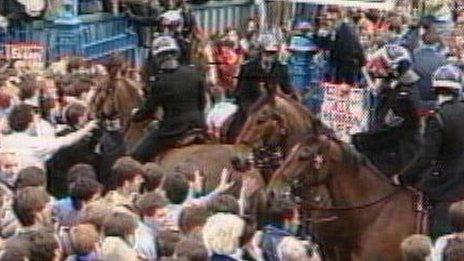Safe standing: Premier League clubs to have further talks
- Published
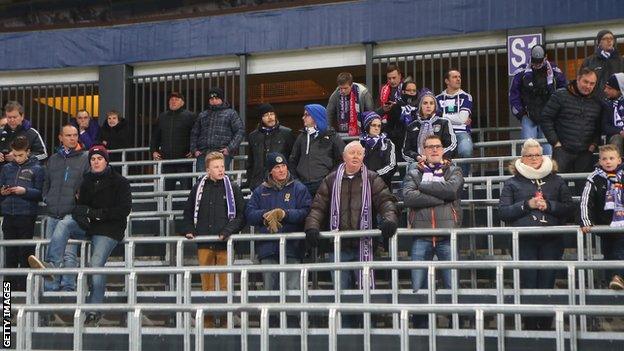
Safe-standing terraces are used at many stadiums in Europe, including Anderlecht's Constant Vanden Stock Stadium
Premier League clubs have agreed further talks on the possibility of introducing safe standing at grounds.
Top flight and Championship stadiums have to be all-seater since terraces were outlawed in the aftermath of the 1989 Hillsborough disaster.
Initial discussions between clubs were held on Thursday, with an emphasis on safety being of paramount importance.
West Ham co-chairman David Gold said the meeting represented the "first steps towards safe standing".
Issues around reintroducing standing at stadiums are believed to vary from club to club, with Everton confirming they are "not considering" safe standing.
Ninety-six Liverpool fans died as a result of the Hillsborough disaster, when supporters standing on terraces watching the Reds play Nottingham Forest in an FA Cup semi-final at Sheffield Wednesday's stadium were crushed to death.
Hillsborough Support Group secretary Sue Roberts said it would be a "backwards step" to bring back standing.
"We have a tendency to forget things in history," Roberts, who lost her brother in the disaster, told BBC Sport. "I think it's one step in the wrong direction, that will lead to another and another.
"I would hate to be still around to say I told you so."
Celtic's safe standing: how does it work?
Law change required
Safe-standing areas, featuring retractable seats, have been introduced abroad, most notably in Germany.
However, it would need government legislation to change if safe standing was introduced at stadiums in England.
Top-flight clubs have been all-seater since the law was changed following Lord Justice Taylor's report into the 1989 Hillsborough disaster.
Dan Johnson, Premier League director of communications, said there had been a "softening" on the topic of standing, citing Celtic's 3,000 'rail seats' at Celtic Park as a good example of safe standing.
"Maybe at some clubs it might be how do we create an atmosphere and maintain it," said Johnson. "But I think a lot of it is to do with listening to their fans and hearing they're interested in looking at it.
"It is very early stages. It's a very emotive subject still, we're acutely aware of that. A number of our clubs do want to discuss it so it's on the agenda.
"We will discuss that but beyond that the only thing I can see happening at these early stages is a scoping exercise, talking to interested stakeholders - including fans' groups and Hillsborough families, but also talking with the government because the legislation is still in place for all-seater stadiums.
"I know it will create discussion, but it's a long road and it might not necessarily lead to the introduction of safe standing."
But a Department of Culture, Media and Sport statement said: "The government has no plans to change its position and introduce standing accommodation at grounds covered by the all-seater requirement."
Clubs have tasked the Premier League with examining safety, fan and technical issues - as well as legislative issues - before further discussions take place.
Atmosphere v safety
Football Association chief executive Martin Glenn told BBC Sport: "We've got different history [to Germany]. We've had Hillsborough, and they haven't.
"We have got to tread very carefully because our number one duty is to create a safe environment for fans watching football."
Scottish champions Celtic have recently introduced just under 3,000 'rail seats' following lengthy discussions with Glasgow City Council.
The Football Spectators Act - which was introduced in response to the Taylor report in the aftermath of the 1989 disaster and requires all-seater stadiums in the top two divisions of English football - does not apply to Scotland.
Rail seats can be flipped up and locked in place providing an individual space for fans to stand behind a waist high rail that runs along the back of every row.
"There's a lot we can learn from the way Celtic are doing it," Glenn added. "We need to look at what the facts are and then calmly make a decision after that.
"We'll work with the whole game to come up with an aligned point of view."
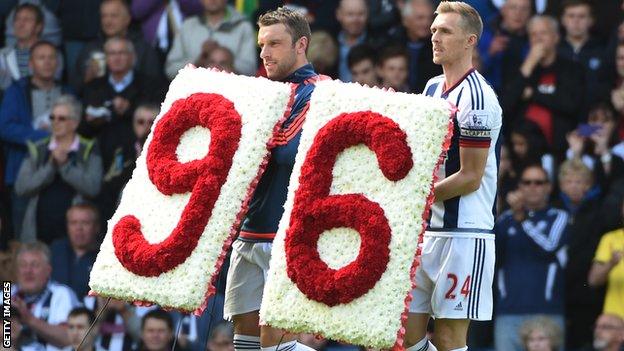
Earlier this year an inquest found that the 96 football fans who died as a result of a crush in the 1989 Hillsborough disaster were unlawfully killed.
Football Supporters Federation chief Malcolm Clarke said safe standing would be a "win for everyone".
"What we want to see is supporters who want to stand being able to do so in properly designed safe-standing areas, and supporters who want to sit being able to do so without people standing in front of them."
Former Newcastle, Sheffield Wednesday and England winger Chris Waddle told BBC Sport that "controlled" standing at grounds would improve atmosphere.
The BBC Radio 5 live pundit said: "There's nothing better than seeing a crowd on their feet and jumping around.
"It might actually lower the price of tickets for some fans. I think it should be an option, I don't think there's a problem with it."
He added: "The safety issue is obviously really important.
"In the 70s and the 80s they overcrowded them. I can see why they changed it, but so long as it's controlled there's nothing wrong with it if the area is the right size and you don't overcrowd it."
- Published10 November 2016
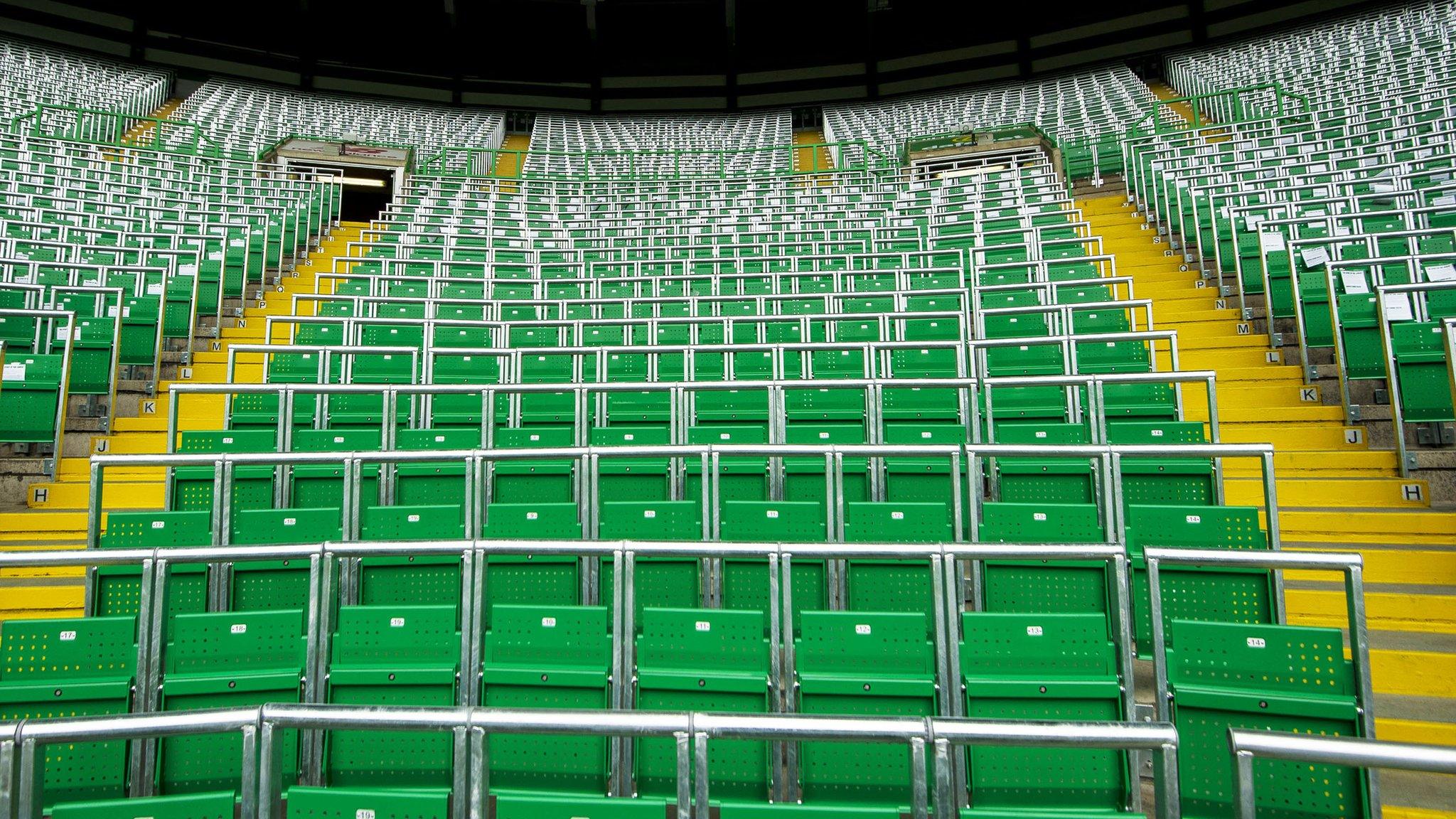
- Published16 July 2016

- Attribution
- Published26 April 2016
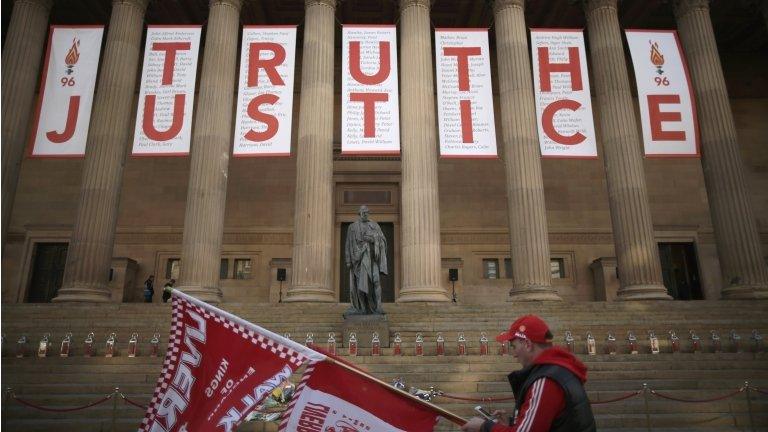
- Attribution
- Published26 April 2016
